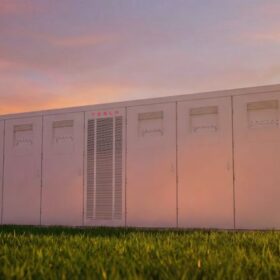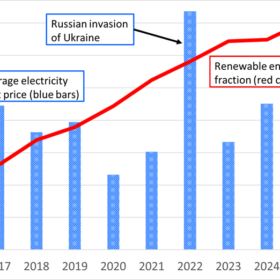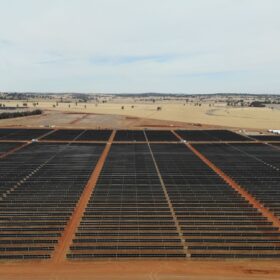The analysis follows Australian Energy Market Operator’s (AEMOs) “feedback loop” assessment, which found Marinus Link remains an optimal development on the lowest-cost pathway to Net Zero.
The two sets of evidence-based analyses by AEMO follow a major assessment in July, undertaken as part of the regulatory process, which found both market and consumer benefits remained strong.
“We welcome the continued scrutiny of this nationally significant infrastructure project through the independent regulatory process and today’s report by the national transmission planner,” Marinus Link CEO Stephanie McGregor said.
“Interconnectors, like Marinus Link, are absolutely essential pieces of infrastructure for reliability as ageing baseload generators retire and we move to a renewables-led grid backed by firming technology.”
“With Marinus Link in place, Tasmania and Victoria can share much more electricity, pairing Victoria’s wind and solar with Tasmania’s flexible hydropower system and geographically diverse wind. This is a powerful synergy that strengthens the grid for both states.”
“The project doesn’t just enable more electricity to flow – it also promotes investment in new clean energy projects and industry, in both Tasmania and Victoria.
AEMO’s feedback loop assessment considered the project’s latest refined costs, showing that Marinus Link continues to be a priority investment in the national electricity grid.
The project has made substantial progress this year, with a positive final investment decision and key Commonwealth and Victorian environmental approvals received.
“We’re mobilising to commence construction of Stage 1 next year to be completed by 2030 at a critical point in the grid’s transition to renewables.”






By submitting this form you agree to pv magazine using your data for the purposes of publishing your comment.
Your personal data will only be disclosed or otherwise transmitted to third parties for the purposes of spam filtering or if this is necessary for technical maintenance of the website. Any other transfer to third parties will not take place unless this is justified on the basis of applicable data protection regulations or if pv magazine is legally obliged to do so.
You may revoke this consent at any time with effect for the future, in which case your personal data will be deleted immediately. Otherwise, your data will be deleted if pv magazine has processed your request or the purpose of data storage is fulfilled.
Further information on data privacy can be found in our Data Protection Policy.